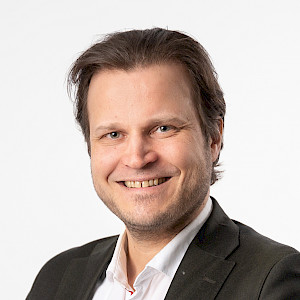Main objectives
Through our objectives, we want to contribute to creating the best working life and the highest level of competence in the world.
COMPETENCE AND EDUCATION
We want our universities of applied sciences to provide high-quality, working life-oriented education and to grant everyone the opportunity to develop their competence throughout their careers.
SKILLS VOUCHER
Developing your competence in order to maintain your value in the labor market is essential for everyone. It benefits the individual, the employer and the society as a whole. Our society needs practical measures to promote continuous learning and competence development. We propose making employees’ voluntary further education and training a tax-exempt employee benefit comparable to the current lunch, cultural or sports vouchers.
CHANGING THE FINNISH TITLE OF THE MASTER’S (UAS) DEGREE
In Finland, it has been possible to obtain a Master’s degree from a university of applied sciences for 20 years. The degree has developed into a unique, development-driving program that prepares its graduates well for working life. There is still work to be done, especially when it comes to raising awareness about the degree. The Finnish abbreviation YAMK is impractical and uninformative. We propose changing the Finnish degree title into “Maisteri (AMK)”.
WORKING LIFE
We want the working life of the future to be fair, flexible, rewarding and renewable for all of us.
SUBJECTIVE RIGHT TO PART-TIME WORK
Life situations can change during your career, and as the retirement age rises, careers extend. At the same time, employment relationships grow shorter and change form, and having income from several sources becomes more common. Not many specialists can work part-time, even when it would be beneficial in certain life situations. Part-time work can be used to proactively prevent the deterioration of work ability and to improve work-life balance. We propose the introduction of a subjective, legally enshrined right to part-time work.
CONSIDERING PSYCHOSOCIAL WELLBEING IN THE OCCUPATIONAL SAFETY AND HEALTH ACT
In 2020, approximately 84,000 people were paid sickness allowance due to a mental health condition, and the total cost of mental health problems to our society is approximately EUR 11 billion per year. In working life, it is possible to prevent these problems to a degree by paying attention to psychosocial stress. We propose an amendment to the Occupational Safety and Health Act so that the psychosocial stress experienced by those employed in specialist positions would be treated as equal to physical stress. In addition, an early intervention model must be adopted in all workplaces.
UNEMPLOYMENT SECURITY
We want work to be always profitable, regardless of its volume or duration.
UNEMPLOYMENT SECURITY REFORM
It is generally agreed that reforming the Finnish unemployment security system is essential. On the other hand, the views on what the reform should look like vary significantly. Unemployment security must be a temporary support, and in addition to financial aid, it must include measures to help the unemployed re-enter working life. All obstacles to work must be dismantled. We propose that earnings-related unemployment allowance be paid to everyone, and that this should be financed through the private unemployment fund system in its current form.
The duties of the unemployment funds will be expanded by enabling them to offer re-employment services. The work requirement of unemployment security will be staggered. The current work requirement provides 300 or 400 days of earnings-related unemployment allowance for a 26-week period of employment. The current work requirement (26 weeks) will be tied evenly to the duration of one’s career. The hybrid policy model for unemployment security will allow people to combine or switch between entrepreneurship and paid work. Work must always be profitable, regardless of its volume or duration.
- The duties of the unemployment funds will be expanded by enabling them to offer re-employment services.
- The work requirement of unemployment security will be staggered. The current work requirement provides 300 or 400 days of earnings-related unemployment allowance for a 26-week period of employment. The duration of unemployment security will be tied evenly to the duration of one's career.
- The hybrid policy model for unemployment security will allow people to combine or switch between entrepreneurship and paid work.
More information about our objectives:

